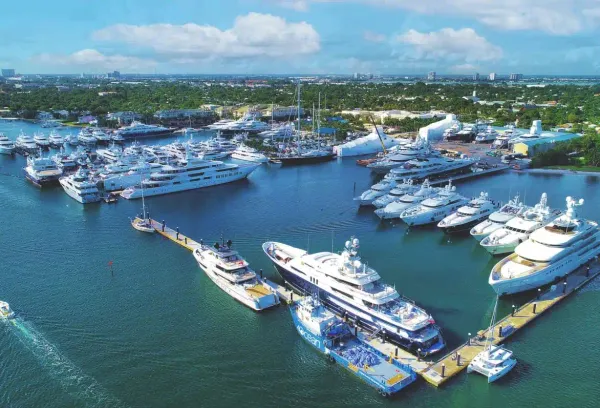U.S. Boating Safety Rules May Be Changing Soon
As the popularity of recreational boating has increased, so have serious accidents.

Some background: in 2005, just off New York's Long Island — a hotspot for boaters and yachters of all kinds — a speeding boat collided with one that was near-stopped, propelling the faster boat up over the top of the boat of the victims. And they were, it quickly became obvious, victims: the father aboard sustained a head injury that gave him short-term amnesia for months; the mother's arm was sliced "to the bone" by a propeller, and the youngest, an 11-year-old girl, was killed. The operator of the other boat was not found to be intoxicated — but he didn't have a boating license.
At the time, the state of New York didn't require boating licenses. The family's mother pushed to have Brianna's Law passed in the state senate; as a result, beginning in 2025, all operators of any motorized vessel in New York must have a boating safety certificate (even if issued in another state).
Now, a version of Brianna's Law has been reintroduced to the U.S. Congress by representatives Andrew R. Garbarino (R-NY-02) and Nick LaLota (R-NY-01). From Rep. Garbarino's statement via his office:
"“According to the Coast Guard, boat operators who did not receive boating safety instruction were involved in 75% of fatal recreational boating accidents in 2023.
It's not hard to see why: like driving a car, operating a boat isn't necessarily difficult — especially with today's new vessels, loaded with safety features and navigating conveniences — but not knowing the fundamental rules is extremely dangerous, particularly in high-traffic, popular areas such as Long Island, Miami, and the Florida Keys, or near difficult inlets like Haulover, Boynton, and Boca in Florida, or Oregon, Hatteras, and Ocracoke in North Carolina.
In addition to fatalities and injuries, damage to vessels from avoidable accidents results in tens of millions of dollars lost — or more, depending on the yacht; just last year, superyachts Venus and Lady Moura collided, resulting in reported damage of up to $370 million.


Superyachts Venus, L, and Lady Moura, R.
One has to presume the crew had the proper credentials — but with interest in superyachts at an all-time high, it's instructive to be aware of what can happen through inattentiveness and misjudgment, even on yachts with professional crew.
As of this writing, the number of coastal states requiring boating certificates nearly equals the number of coastal states that don't, highlighting a potentially simple change to improve the safety of everyone on the water. The Brianna Lieneck Boating Safety Act of 2025 doesn't go so far as recommending that all states implement boater safety courses (or require certification from other states), but it does direct the U.S. Coast Guard to study current laws (or lack of laws), and to deliver a report on what it believes might be the minimum boating education to cut down on accidents, whether fatal or just damaging.






